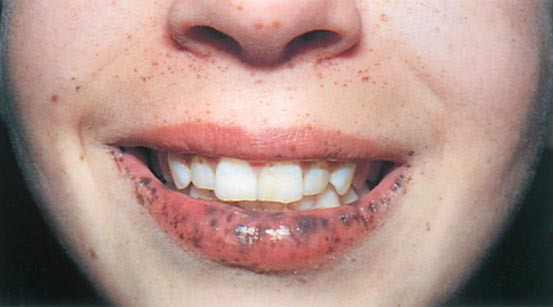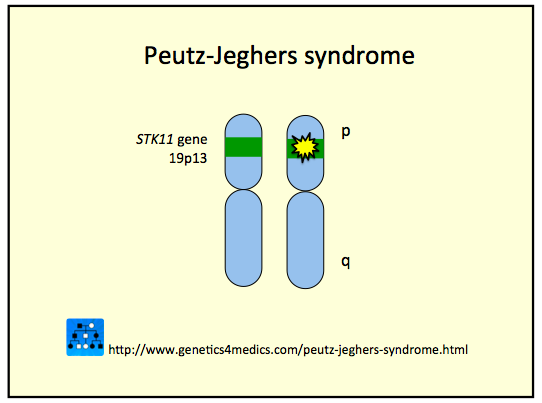Peutz-Jeghers syndrome is an autosomal dominant genetic disease, characterized hamartomatous gastrointestinal polyps and pigmentation of melanin around the mouth, eyes, nostrils, oral mucosa, fingers and other parts of the body. The disease usually manifests in early childhood with pigmentation or polyposis, such as bowel obstruction and/or bleeding. Compared with the general population, patients have an increased risk of various intestinal and extra-intestinal malignancies, including breast, pancreatic, ovarian, testicular and cervical cancer. For example, the risk of gastrointestinal cancer is ~4 times higher, while the risk for breast cancer is ~6 times higher. Approximately 75% of cases are familial (prior family history), while the remaining cases appear to be sporadic. Women also have an increased risk of developing benign ovarian neoplasms and malignant adenoma of the cervix, a rare aggressive tumor. Less often, males may develop Sertoli cell tumors of the of the testes and gynecomastia.
Peutz-Jeghers syndrome – STK11 gene


The syndrome is caused by mutations in the tumor suppressor gene STK11, which encodes a serine/threonine kinase, which inhibits cell proliferation. To date, more than 100 different pathogenic mutations throughout the STK11 gene have been reported, while extensive deletions of the STK11 gene are also known to occur.
InterGenetics performs DNA sequence analysis, via Next Generation Sequencing (NGS) on a Genome Analyzer – Ion Proton platform, of all exons and intron-exon junctions/splice sites of the STK11 gene, as well as deletion/duplication analysis through MLPA (non-detectable by DNA sequencing), allowing us to detect >98% of all pathogenic mutations of the gene.
See also genomic testing for gastrointestinal cancers – 21 genes NGS panel